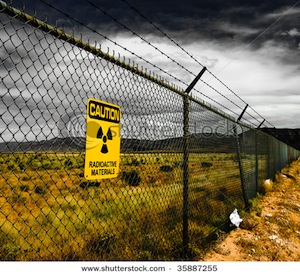Proposed Budget Cuts Threaten Funding to Secure Nuclear Material
February 15, 2011
Featured Image
Today's top nuclear policy stories, with excerpts in bullet form.
Stories we're following today: Tuesday February 15, 2011
House Republicans Make It Easier For Terrorists To Get Nukes - Max Bergmann in “The Wonk Room” a Think Progress blog [link]
- On Friday, House Republicans put forth a “continuing resolution” (CR) to fund the government past March 4th that was filled with spending cuts.
- House Republicans are choosing to significantly cut the National Nuclear Security Administration’s nonproliferation programs, the sole purpose of which is to prevent terrorists from getting their hands on loose nuclear weapons and materials.
- While Republicans have talked about the need to inflict pain in their budget, doing so in a way that increases the risk of the nuclear annihilation of an American city is perhaps taking the pledge too far.
- House Republicans have proposed to cut funding for these programs by 22 percent or $647 million.
- A softball-sized amount of highly enriched uranium can demolish an entire city. Yet in many countries, nuclear materials remain highly insecure, leaving them susceptible to theft. For years nuclear materials have floated on the black market and it is known that Al Qaeda has sought to purchase them.
- These programs in the past have had significant bipartisan support and are the lasting legacy of Republican Senator Richard Lugar.
- Last year Harvard’s Graham Allison wrote, “The good news is that this ultimate catastrophe is preventable. … [C]itizens must press their elected officials to adopt a clear agenda for action and then hold them accountable for following through.”
Budget 2012: Energy Department - Steven Mufson in The Washington Post [link]
- President Obama's plan would boost the Energy Department's budget to $29.5 billion, up 12 percent from the enacted 2010 budget and up 4 percent from estimated spending in the current fiscal year.
- The 2012 budget plan would provide an additional $36 billion in loan-guarantee authority for new nuclear power plants. The loan guarantees would save power companies billions in financing costs for the pricey projects.
- The department, which oversees the nation's nuclear weapons stockpile, would also get $11.8 billion for the National Nuclear Security Administration (NNSA), a $1.9 billion increase over the amount enacted for the 2010 fiscal year. Within that amount, the Obama budget seeks $2.5 billion for non-proliferation, a program to secure nuclear material. That's a $439 million increase of the 2010 appropriation. But House Republicans' continuing resolution plan would trim that back, lowering it to $124 million below the 2010 appropriation.
- [House Republicans] would also keep, rather than abandon, the proposed Yucca Mountain, Nev., repository for radioactive waste from nuclear power plants.
Eat the Future - Paul Krugman in The New York Times [link]
- On Friday, House Republicans unveiled their proposal for immediate cuts in federal spending. Uncharacteristically, they failed to accompany the release with a catchy slogan. So I’d like to propose one: Eat the Future.
- The new House majority promised to deliver $100 billion in spending cuts — and its members face the prospect of Tea Party primary challenges if they fail to deliver big cuts. Yet the public opposes cuts in programs it likes — and it likes almost everything. What’s a politician to do?
- The answer, once you think about it, is obvious: sacrifice the future.
- Why cut $648 million from nuclear nonproliferation activities? (One terrorist nuke, assembled from stray ex-Soviet fissile material, can ruin your whole day.)
- By slashing future-oriented programs, they can deliver the instant spending cuts Tea Partiers demand, without imposing too much immediate pain on voters. And as for the future costs — a population damaged by childhood malnutrition, an increased chance of terrorist attacks, a revenue system undermined by widespread tax evasion — well, tomorrow is another day.
U.S. to Stop Funding NATO Missile Defense Program - Reuters [link]
- The United States on Monday said it would stop funding a multibillion-dollar U.S.-European missile defense program known as MEADS after fiscal year 2013, calling it unaffordable in the current budget climate.
- "Our partners may go forward with some MEADS, but it is not our plan to do so," the Pentagon's comptroller Robert Hale told a budget briefing.
- The Pentagon said it remained concerned about the overall track record of the program and might ordinarily have canceled it. But Hale noted that continuing development of the program until 2013 would avoid costly termination fees and benefit the partner nations on the program.
- A Pentagon fact sheet said the program had experienced a number of technical and management challenges since its start in the mid-1990s.
- Continuing the program would cost nearly $1 billion, or more, but the Army could not use MEADS to replace its Patriot missiles given delays in the MEADS program.
Syria Stonewalls on Site IAEA Wants to See: Sources - Fredrik Dahl in Reuters [link]
- Syria has not granted a U.N. nuclear watchdog request for prompt access to a desert site, rebuffing an appeal for urgent cooperation with a probe into suspected covert atomic activity, diplomatic sources said.
- One senior Western diplomat said the United States was discussing with other board members a possible resolution on Syria's lack of cooperation. "It is certainly some element kicking around for a draft resolution," the diplomat said.
- Amano's letter to Syrian Foreign Minister Walid al-Moualem on November 18 was the first time he appealed to Syrian authorities directly, rather than just through his regular reports.
- He asked the Syrian government to provide prompt IAEA access to relevant information and locations linked to Dair Alzour, which Damascus says was a non-nuclear, military facility.
- Last year, the IAEA gave some weight to suspicions of illicit atomic activity at Dair Alzour by pointing to uranium traces found in a 2008 visit by inspectors and saying these traces did not come from Syria's declared nuclear inventory.



